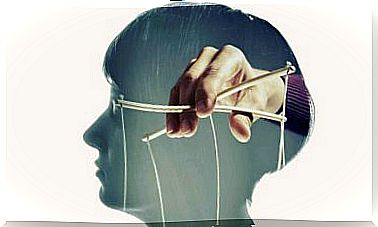If You Feel Bad, I’ll Be There

If you feel bad, I’ll be there, totally interested: interested in you. I will not disappear when you no longer need me, I will not listen to you out of duty or extend my hand to receive something in return. If you feel bad, I won’t tell you what you’d like to hear, but the truth.
We all have had a family member or friend who needed a shoulder to cry on at some point. Seems easy to shoulder, right? Indeed, we tend to believe that it is easier to console than to be consoled. Still, we often don’t do it in the best way. There are mistakes that it is easy to run into even without being aware of them, even when the consequences slowly begin to surface.
Listening only to what we want to hear, offering halfway support, giving advice that we ourselves do not complete… Is all this familiar to you? Well, many times we believe we are helping when in reality we are doing the opposite. The time has come to open your eyes.
If you get sick, I’ll listen to everything you have to say
While we would like to help others, we also have our problems. As a result, it often happens that we don’t really listen to who we are in front of. Sometimes we think he is telling us nonsense, proving us unable to really understand what he is experiencing and feeling. It is a mistake. This way, we will never help the other person.
In such situations, you need to resort to all the empathy you have. Put yourself in the shoes of others: would you like to be heard for real? What would you like to hear if you were in their place? What would be useful to you in such circumstances? By answering these questions, you will find the solution to give concrete and valuable support to the person you wish to help.

When you listen, avoid replying with words and phrases of circumstance: those that come from our lips when we do not know what to say, but we are terrified of silence. “Don’t worry”, “Everything will work out”, “You’ll be fine again” are stopgap formulas for when you have nothing better to say. Do you want the truth? If you don’t know what to say, that’s not a problem. Just listen, ask questions.
It is not always necessary to say words of encouragement. To show your support, just stay by that person’s side, offer them your shelter, listen to them and try to understand their problem, not necessarily to solve it.
On the other hand, sometimes doing nothing means not doing much. A simple hug can be much more comforting than a few façade words, said without really believing it. Small actions and listening are worth a thousand times more.
Even if you feel bad, I’ll be honest
When helping a friend, don’t tell them how to act or how to deal with things. If you do, you will be making a big mistake. In most cases, it can be very helpful to tell about your experiences, so that the other person feels that he is not the only one who has faced an uncomfortable situation. When you do, make sure you are honest with each other and with yourself.
Let’s say, for example, that you are in the company of a friend who is facing major problems in her relationship. He had a difficult childhood and all of this affects his relationships. His problem is his tendency to get attached to someone he “thinks he loves”. How can you help her?

If you have experienced a similar situation, you can share your experience with her. You could also give her some useful advice, listing the benefits of being alone, of spending some time without a partner, going out more with friends, finding happiness in them … But are you sure you are consistent with what you say?
Often people preach well, but scratch badly: their advice is valid, but they themselves are the first not to put it into practice. Other times, those advice have a price that the person to be consoled cannot bear. If you choose to make a suggestion, make sure you don’t cause more frustration in the person listening to it.
Another more negative practice than ever is to say only what the person in question wants or needs to hear. He is having a bad time, but he will not solve the situation if he finds few sincere people. Make an effort to tell it like it is and you will really help her. Sometimes constructive criticism is the most positive thing about it.

Cheering up is not that easy, is it? You need your concrete availability, a great attention span and the ability to commit in the long term, giving your support without leaving room for lies. All this can serve to alleviate the pains or throw a small glimmer of light on the situation of those who, at this moment, need you more than ever.









